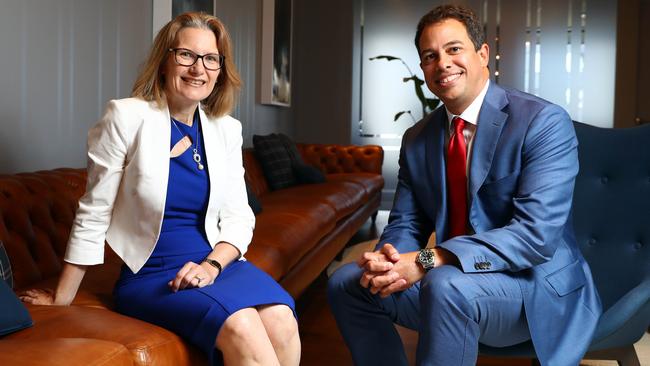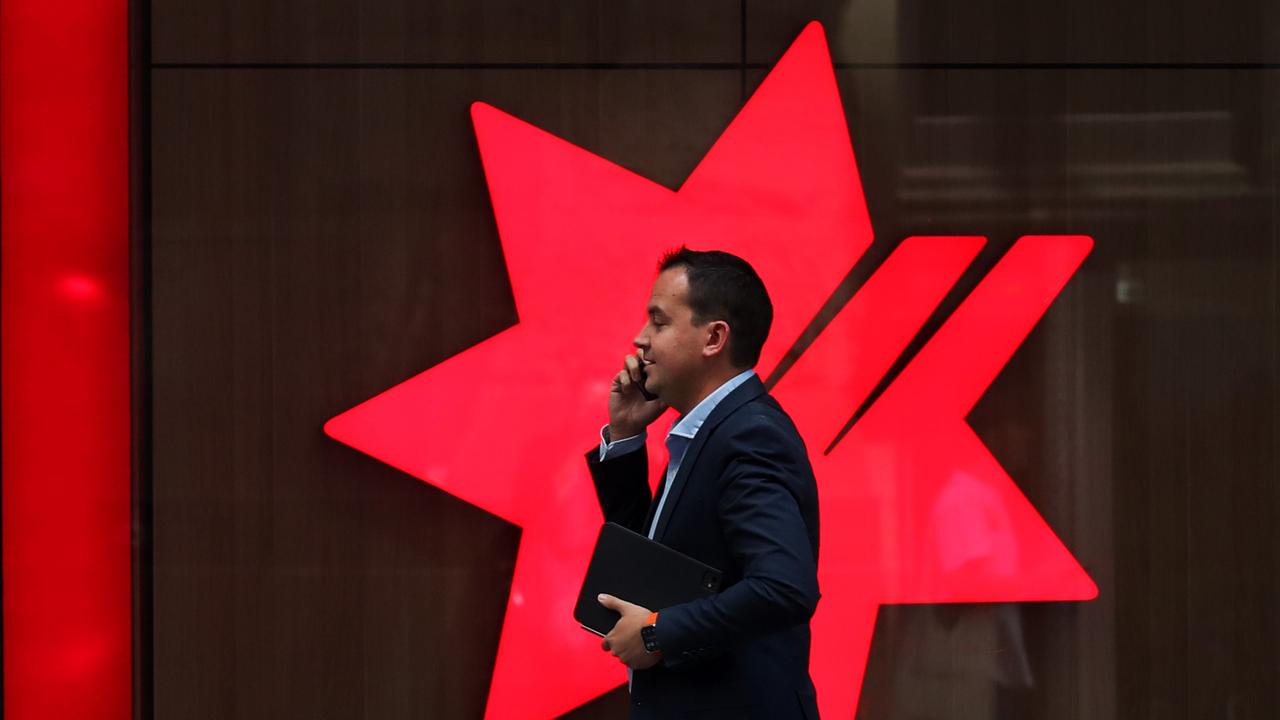Escala CIO Tracey McNaughton takes cautious approach
Escala’s new chief investment officer says highly valued growth stocks still have further to run on the local sharemarket.

The new chief investment officer of the $6bn wealth management firm Escala Partners, former UBS executive Tracey McNaughton, says highly valued growth stocks still have further to run on the local sharemarket, but she favours increasing allocations to alternative assets.
Ms McNaughton, who has replaced Escala’s well-known investment strategist Giselle Roux following Ms Roux’s recent resignation, joined the Melbourne-based wealth manager last week after less than a year at Wilsons, where she was head of asset allocation.
“It is not something that planned to do, to have such short tenure anywhere. This was a situation where the offer from Escala was too good to turn down,” Ms McNaughton, the former head of investment strategy at UBS Asset Management, told The Australian.
“It wasn’t that I was unhappy where I was. It was one of those opportunities that don’t come up very often. It offered me a greater use of my skills.”
She said that in the near to medium term she was “fairly cautious” on markets given they were “late in the cycle”.
“It is important not to take any significant positions,” she said.
“This is not a time for conviction. To be close to your strategic benchmarks, with a five to seven-year horizon in place. I would be positioned with quality companies, large caps, defensively positioned.”
The so-called WAAAX tech darling stocks — WiseTech, Afterpay, Appen, Altium and Xero — have been hit over the past 10 days as investors in Australia and offshore have reconsidered the prices they were willing to pay for high-growth companies.
WiseTech also became the largest ever Australian target of an activist short attack after J Capital Research claimed in two reports that the tech firm had inflated its revenues and relied too much on acquisitions to grow.
Yet Ms McNaughton said a wholesale rotation out of growth stocks had yet to materialise.
“We are approaching that time, but we are not quite there yet. There are still opportunities for growth,’’ she said.
She described Australian equities as “reasonably valued” and said it was a positive that the federal government had room to move on fiscal stimulus because of its strong budget position.
“Central bankers know their power to do anything and be effective is diminishing,” she said. “It is going to be an interesting time over the next few months. Governments will have no choice but to step in.’’
Amid the rise in allocations to alternative investments — private equity, private debt, hedge funds and infrastructure — she said: “They are good opportunities at the moment.”
The private and public debt markets especially have become a yield opportunity for cashed-up family offices and institutional investors as the big banks have cut back funding.
Last week Virgin Australia secured buyers for a rare $150m listed debt offer after a $925m raising by private equity giant KKR and $550m deal from Partners Group.
Bond giant Pimco is also working on a $1bn raising, while private equity group CVC’s specialist credit unit, CVC Credit Partners, is reportedly considering launching a listed debt fund.
“The amount of money now going into these new debt opportunities is something different. The banks have stepped out of these asset classes,’’ Escala chief executive Pep Perry said. “As a trend, that has a lot longer legs than I first anticipated.”
Escala was started in 2013 by a group of former UBS advisers led by Mr Perry and is chaired by former UBS and Citigroup banker Brett Paton.
In February, Focus Financial Partners, a New York-based partnership of wealth management firms backed by KKR, made its biggest move into the Australian financial services sector by acquiring a stake in Escala. Mr Perry said Focus had so far lived up to its global reputation as a hands-off partner.
“They are observers of the board, they don’t attend any meetings. But talking M&A, I talk to them everyday,” he said.
“Their mantra is don’t turn entrepreneur into employee. They want to participate in the growth rate Escala has.’’
Mr Perry said Escala had run the ruler over six different wealth management businesses this year in a bid to expand its operations.
“We have rejected all of them,” he said. “I am only interested in businesses that have EBIT. We have more capacity to hire more people in Sydney compared to Melbourne.’’ The group also has offices in Perth.
He said Escala now had just under $6bn in assets under management, up 40 per cent up over the calendar year.
He said the firm’s EBIT had never been less than $5m since the firm was launched.
A collection of Escala’s clients are investors in debt securities in financial services group Latitude, which last month failed in its second attempt to list on the Australian Securities Exchange.
They bought the notes from Latitude’s owners KKR, Deutsche and Verde in 2015. “Our clients are happy to hold their positions. If the sellers spin off more of those notes, we would definitely be participating,’’ Mr Perry said.
He said the biggest float of the year “should have been more seamless in how it was executed”.




To join the conversation, please log in. Don't have an account? Register
Join the conversation, you are commenting as Logout